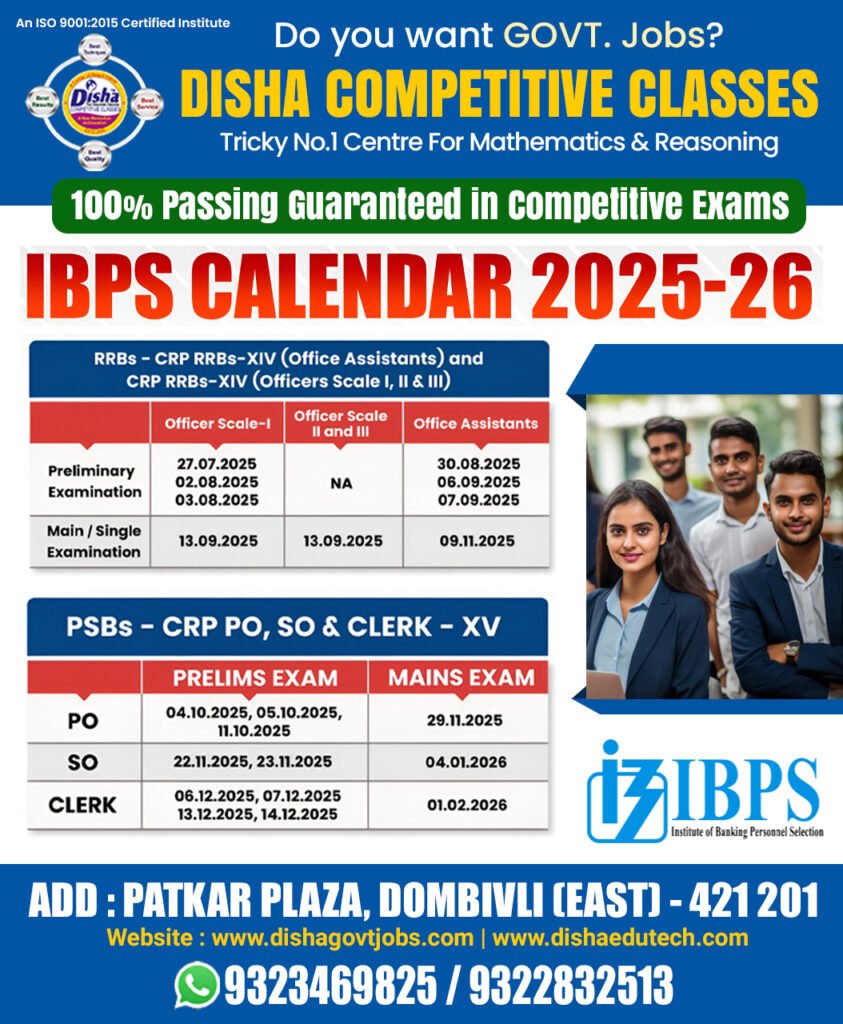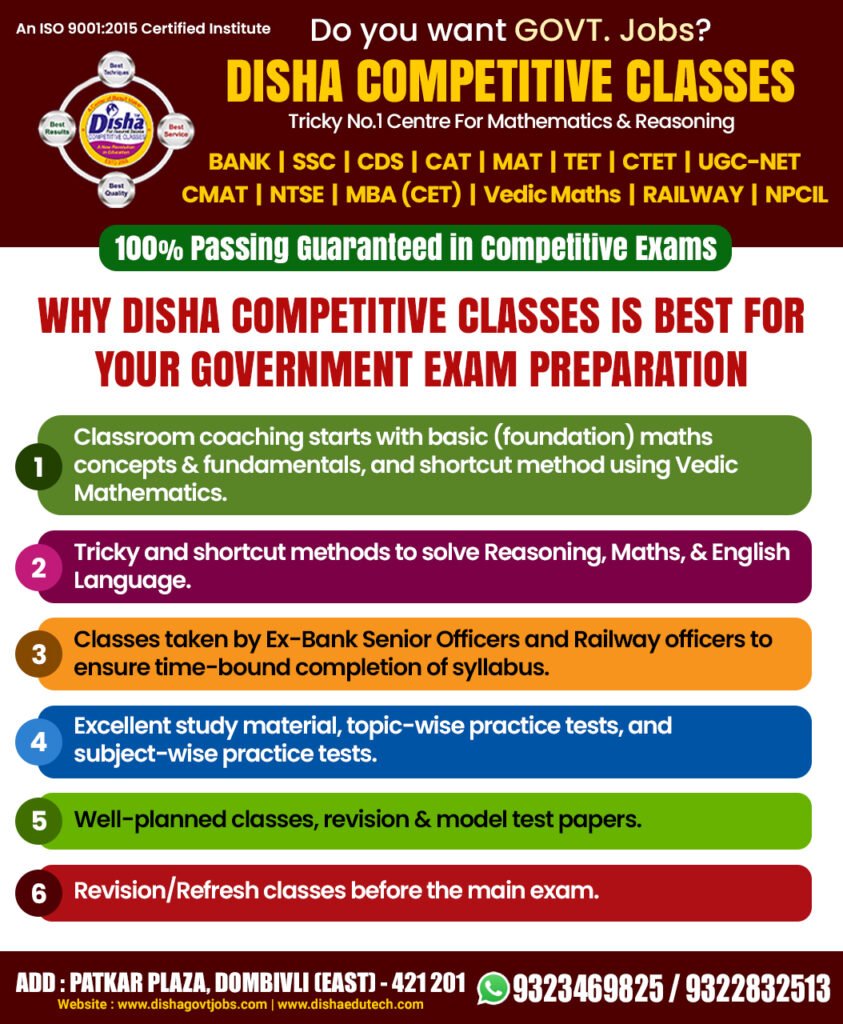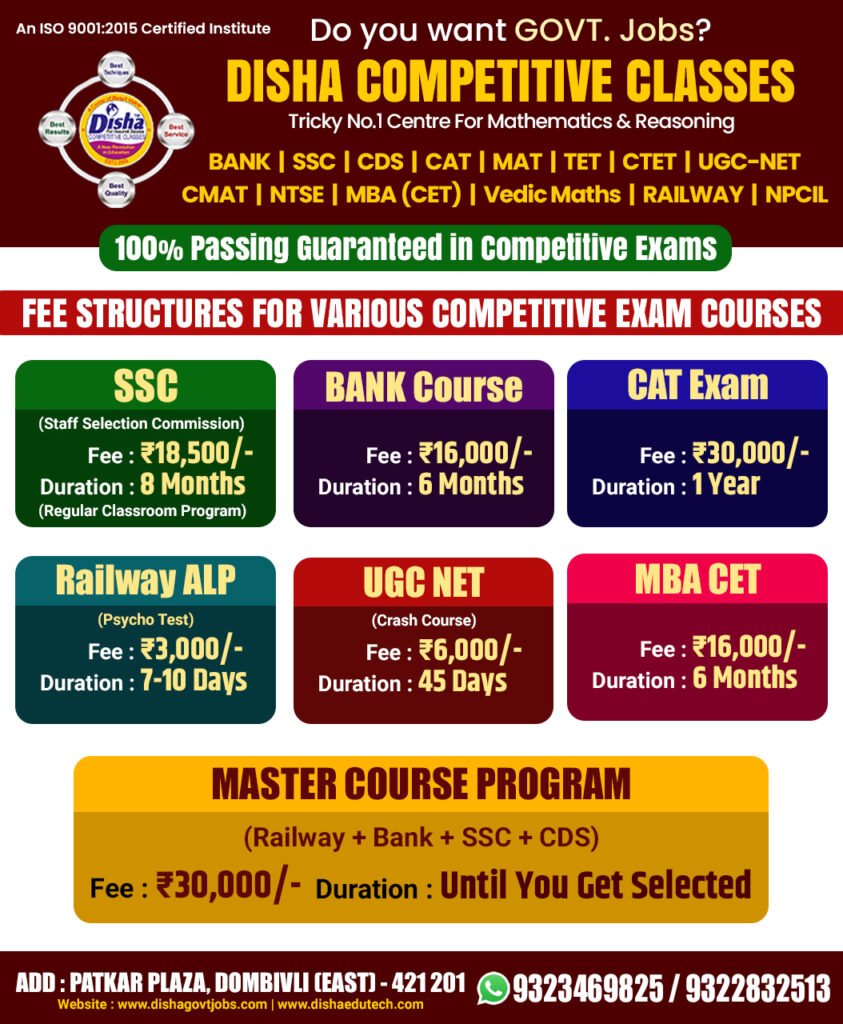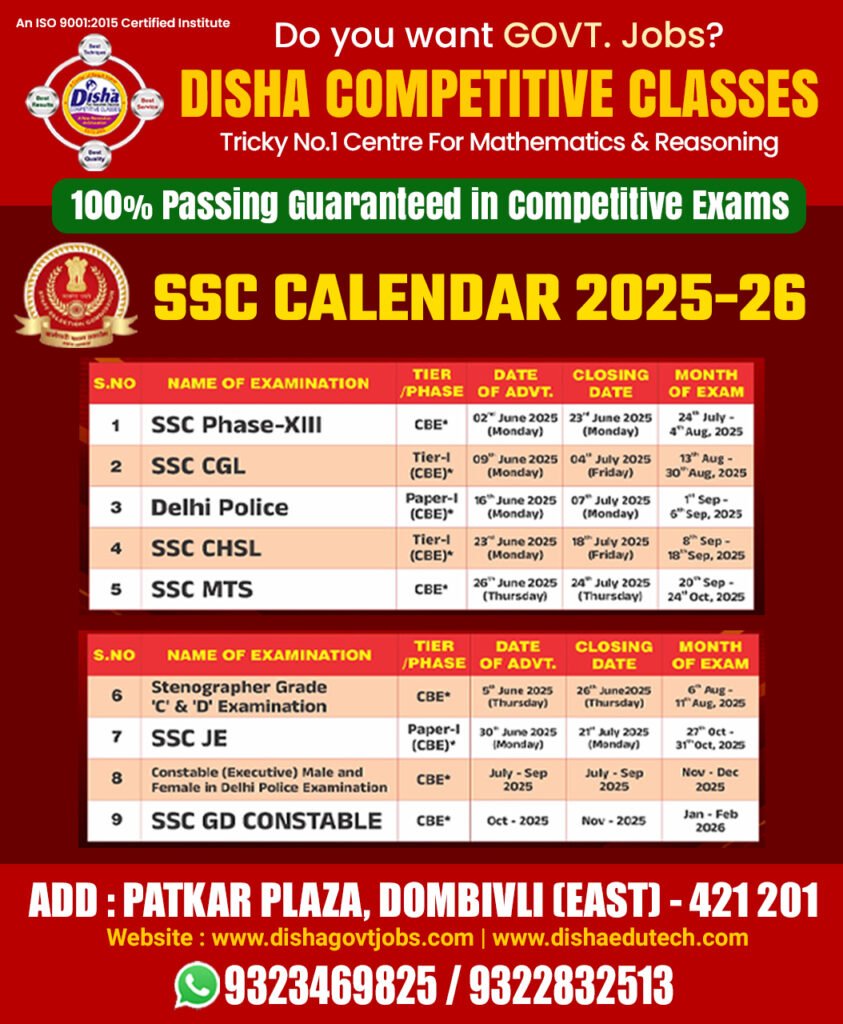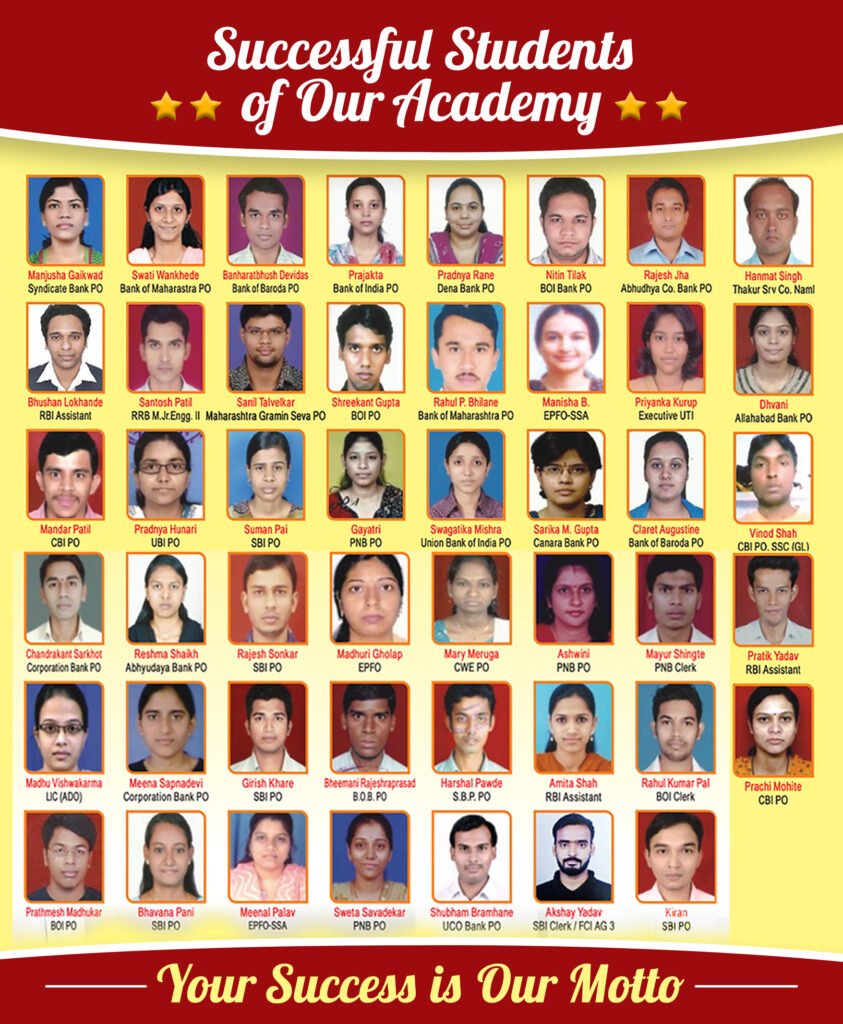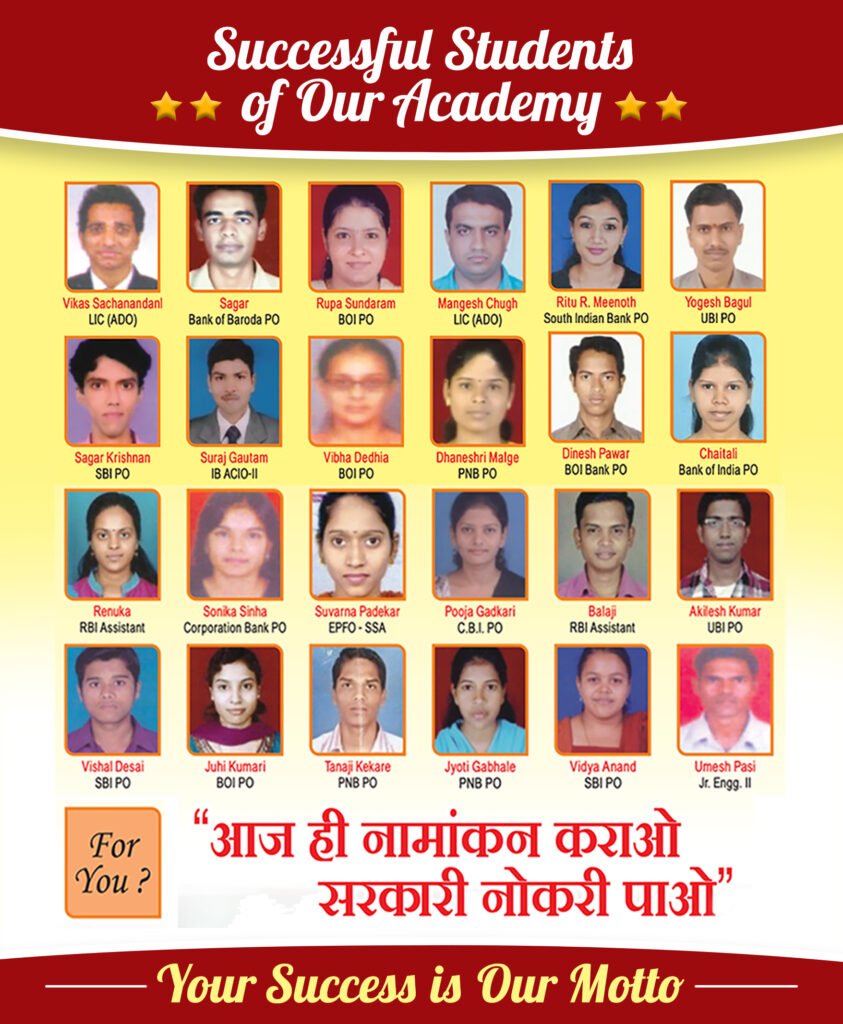
IBPS PO Syllabus 2025
IBPS PO Syllabus 2025: Aspiring candidates preparing for the IBPS PO 2025 exam should familiarize themselves with the IBPS PO Syllabus 2025 to enhance their chances of success. As per the IBPS Calendar 2025, IBPS PO 2025 Prelims for Probationary Officer posts on the 4th, 5th, and 11th of October 2025, and the IBPS PO Mains Exam on the 29th of November 2025. You can check the latest IBPS PO Syllabus & Exam Pattern in this post below. IBPS PO Syllabus is the same as any other Bank Exam and if there are any updates or changes it is released officially along with the notification pdf.
Therefore, it is important to be well-versed in all these subjects to excel in the examination. To help you prepare effectively, we have provided all the necessary information regarding the IBPS PO Syllabus in this post.
IBPS PO Prelims Syllabus 2025
IBPS PO Prelims is the primary stage of the selection process. Candidates who qualify for the IBPS PO Prelims Exam are invited to the main exam. The IBPS PO prelims exam mainly consists of three sections these are Quantitative Aptitude, Reasoning, and English. The maximum mark in the mains exam is 100. IBPS PO 2025 Prelims Syllabus is below: The IBPS PO Prelims exam consists of three main sections:
- English Language
- Quantitative Aptitude
- Reasoning Ability
IBPS PO Prelims Syllabus for English Language
The IBPS PO syllabus for the English Language includes the following topics:
- Cloze Test
- Sentence Correction
- Para Jumbles
- Fill in the Blanks
- Reading Comprehension
- Spotting Errors
- Sentence Improvement
- Para/Sentence Completion
- Sentence Rearrangement
- Column-Based, Spelling Errors
- Word Swap
- Word Rearrangement
- Sentence Based Errors
IBPS PO Prelims Syllabus for Quantitative Aptitude
The Quantitative Aptitude section in the IBPS PO syllabus covers various mathematical topics. Here’s a concise overview:
- Simplification and Approximation: This involves performing mathematical operations using BODMAS (Bracket, Order, Division, Multiplication, Addition, and Subtraction) rules, working with squares, cubes, square roots, cube roots, indices, fractions, and percentages.
- Number Series: This includes finding missing numbers or identifying patterns in numerical sequences. You may encounter different types of number series like missing number series and wrong number series.
- Inequality: Inequality problems deal with solving linear and quadratic equations and comparing quantities using methods like Quantity Comparison (I and II).
- Arithmetic: This section covers fundamental arithmetic concepts such as Ratio and Proportion, Percentage, Number System, HCF (Highest Common Factor), LCM (Lowest Common Multiple), Average, Age-related problems, Partnership, Mixture and Alligation, Simple Interest, Compound Interest, Time and Work, Wages, Pipe and Cistern, Profit and Loss, Discounts, Speed-Time-Distance problems, Boat and Stream, Train-related problems, Mensuration (2D and 3D shapes), Probability, and Permutation and Combination.
- Data Interpretation (DI): In DI, you’ll work with different types of data representation like tables, pie charts, line charts, and bar charts. You’ll have to analyze and interpret the given data to answer questions related to the information presented. You may encounter single or multiple pie charts, line charts, or a combination of different data sets in caselets.
- Data Sufficiency (DS): This section assesses your ability to determine if the given data is sufficient to answer the question or not. You’ll be presented with two statements, and you need to analyze them to determine if both together, either alone, or neither is sufficient to solve the problem.
IBPS PO Prelims Syllabus for Reasoning Ability
The Reasoning Ability section of the IBPS PO syllabus includes the following topics that assess a candidate’s logical and analytical thinking skills.
- Seating Arrangements: This involves arranging people in circles, squares, triangles, or linear formations, sometimes with an uncertain number of persons.
- Puzzles: Candidates need to solve puzzles based on categories, comparisons, designations, boxes, days, months, years, floors, and flats.
- Inequalities: Candidates are tested on their ability to solve direct and indirect inequality problems.
- Syllogism: This tests the understanding of statements and conclusions, where candidates deal with cases like “only a few” relationships.
- Input-Output: Candidates need to shift and arrange data based on certain rules and patterns.
- Data Sufficiency: This tests whether candidates can determine if the given data is sufficient to answer a question using two statements.
- Blood Relations: Candidates are evaluated on their understanding of normal blood relations.
- Coding-Decoding: This involves solving problems related to Chinese coding, where letters or numbers are replaced with specific codes.
- Order and Ranking: Candidates need to arrange elements based on their positions in a particular order or rank.
- Alpha/Numeric/Symbol Series: Candidates need to identify patterns and complete series involving alphabets, numbers, or symbols.
- Distance and Direction: This tests the ability to determine directions and distances based on given information.
- Miscellaneous: This includes various types of reasoning questions like identifying odd one out, word pairs, number pairs, and number operations.
IBPS PO Mains Syllabus 2025
If candidates score above the cutoff marks in the IBPS PO prelims exam, they will qualify for the Mains exam. The IBPS PO Mains Syllabus 2025 is divided into five sections:
- Reasoning & Computer Aptitude
- General/ Economy/ Banking Awareness
- English Language
- Data Analysis & Interpretation
- English Language (Letter Writing & Essay)
IBPS PO Mains Syllabus for Reasoning
Here’s the IBPS PO Mains Syllabus for Reasoning:
- Seating Arrangements
- Puzzles
- Inequalities
- Syllogism
- Input-Output
- Data Sufficiency
- Blood Relations
- Coding Decoding
- Order and Ranking
- Resultant Series/Coded Series/Stepwise Series
- Coded Distance and Direction
- Logical Reasoning
IBPS PO Mains Syllabus for General/Economy/Banking Awareness
Here’s the IBPS PO Mains Syllabus for General/Economy/Banking Awareness:
- National Current Affairs
- International Current Affairs
- State Current Affairs
- Sports News
- Central Government Schemes, Agreements/MoU
- Books & Authors
- Summits & Conferences
- Defense News
- Science & Technology News
- Banking and Financial Awareness
- Static Awareness
- Recent RBI Circulars-Based Questions
- Business & Economy Related News
- Important Days
- Obituaries
- Important Appointments
- Important Awards & Honours
- Union Budget 2025
- Economic Survey 2025
- Ranks/Reports/Indexes
IBPS PO Mains Syllabus for English Language
The following is the syllabus for the IBPS PO Mains Exam for the English Language.
- Cloze Test
- Reading Comprehension
- Spotting Errors
- Sentence Improvement
- Sentence Correction
- Para Jumbles
- Fill in the Blanks
- Para/Sentence Completion
- Paragraph Completion
- Coherent Paragraph
- Inferences
- Starters
- Connectors
IBPS PO Syllabus PDF
IBPS PO Syllabus PDF contains the important topics that candidates have to cover in each subject of Prelims and Mains. Below we have provided IBPS PO Syllabus PDF. Candidates can download the syllabus in PDF format and plan their preparation accordingly.
IBPS PO Mains Syllabus for Data Analysis and Interpretation
The Data Analysis & Interpretation section of the IBPS PO Mains exam covers the following topics.
- Number Series: This section involves different types of number series, such as Missing Number series, Wrong number series, Double Pattern number series, and Statement and variable-based number series.
- Inequality: In this part, you will encounter questions related to Quadratic equations, Two or Three Quantity comparisons, and Statement-based Quadratic equations.
- Arithmetic: This section consists of various types of arithmetic questions. These include Simple arithmetic questions, Variable-based arithmetic questions, Filler-based arithmetic questions, Multiple statement-based arithmetic questions, and Multiple options-based arithmetic questions. The topics covered include Ratio and Proportion, Percentage, Number System, HCF and LCM, Algebra-based arithmetic questions, Average, Age, Partnership, Mixture and Alligation, Simple Interest, Compound Interest, Time and Work & Wages, Pipe and Cistern, Profit and Loss & Discount, Speed Time Distance, Boat And stream, Train, Mensuration 2D and 3D, Probability and Permutation and combination, etc.
- Data Interpretation (DI): In this segment, you will encounter different types of data interpretation problems. These include:
- Table Data Interpretation: Simple table DI, Missing Table DI, and Variable-based table DI with notes.
- Pie chart Data Interpretation: Percentage and Degree distribution-based pie chart DI, Missing pie chart DI with notes, and Variable-based pie chart DI with notes.
- Line chart Data Interpretation: Single and Multiple line chart DI, Line chart DI with variables and notes.
- Bar chart Data Interpretation: Single and Multiple bar chart DI, Bar chart DI with variables and notes.
- Mixed chart Data Interpretation: Including multiple charts and information (e.g., Pie + Table, Line + Table, Bar + Table, Pie + Caselet) with notes.
- Caselet: Table-based caselet, Venn Diagram-based caselet, Arithmetic and Filler-based caselet with notes.
- Radar Data Interpretation: Trigonal, Pentagonal, Hexagonal, etc.
- Arithmetic topic-wise Data Interpretation: DI based on Arithmetic topics such as Time and work, Profit and Loss, Probability, Simple and compound interest, etc. on various charts.
- New pattern Data Interpretation: Scatter, Stock, Funnel, Sunburst, etc.
- Data Sufficiency: This section includes Two-statement and Three-statement Data Sufficiency questions.
How to Prepare for the IBPS PO Descriptive Test?
Following are the tips to prepare for IBPS PO Descriptive Test:
- Candidates should familiarize themselves with the format of the paper by looking at the syllabus and previous years’ questions
- Must develop their writing skills by practicing essay writing, letter writing, and precise writing
- Candidates should develop their vocabulary, grammar, and sentence structure
- Practice writing on a variety of topics to improve flexibility and creativity.
How to Prepare for IBPS PO Interview?
IBPS PO syllabus for interviews can range from numerous topics such as banking and or finance-related questions. The questions can be based on RBI functions, Governors, and Headquarters, types of cards, bank accounts, and questions related to KYC. Candidates must be versed in current affairs such as budget-related questions etc. The maximum mark allotted to the interview round is 100. The interview asks about educational qualifications, banking awareness and current affairs, general knowledge, current job profile (if the person is working), etc. Below are some of the questions candidates can expect in the IBPS PO Interview:
Banking Awareness and Current Affairs
New Government Schemes (eg Pradhan Mantri Jan Dhan Yojana, Unnat Bharat Abhiyan, etc.) Popular topics or terms (eg: Cryptocurrency, NPA, KYC, Money Laundering, Inflation, Deflation, FDI, etc) Recent Events (eg GST, FRDI Bill, BREXIT, Bank Fraud, Bank Recapitalization,n, etc) Important Banking Terms (eg CRR, PLR, NPAs, Repo Rate, reverse repo rate, etc.) Process-related terms day-to-day banking (eg account types, check types, lockers, check against the draft, Demat account) Terms related to the daily processes of banks ( eg account types, check types, lockers, check against the bill, demat account) ) n Apart from these topics, you can ask questions about the syllabus Bank PO exam size during the Bank PO interview.
General knowledge and current affairs
Critical points of the Indian constitution Important events around the world (elections in any country, conflict between two countries, etc.) Person in the news (for example: a leader from another country) A country visiting our country, an athlete, etc.
Educational background or career goals
Why did you choose this stream? What did you do after you graduated? Why do you want to join the banking industry? Why do you want to join Govt as an XYZ graduate? Why the public sector, why not the private sector? Why don’t you want to continue your university studies?
Personal Questions
What is special about your hometown? What does your father do? Why don’t you join your father’s company? Who is your role model and why? What are your strengths and weaknesses? Tell me about a time when you demonstrated your leadership skills. Tell me about a time when you worked in a band.
Click Here for IBPS PO Exam Pattern, Notification adn Eligibity



